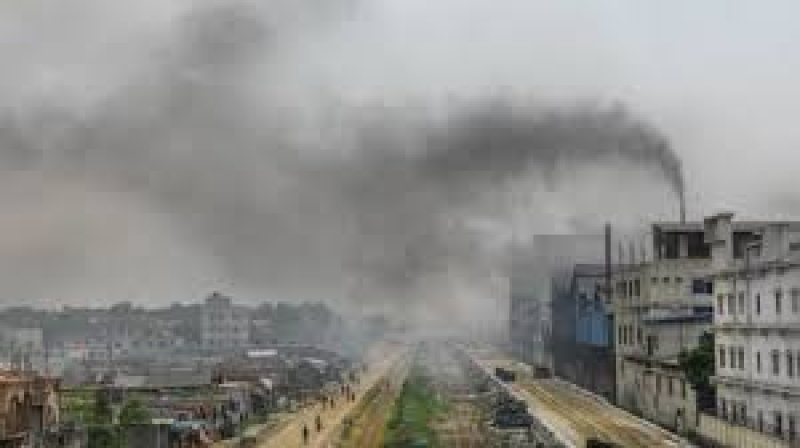- Power generation at Payra Thermal Power Plant 1st unit starts after a month |
- Irregularities, injustice will no longer be accepted in politics: Jamaat Ameer |
- 2 arrested in Jhenaidah for allegedly selling madrasa student |
- Koko’s wife campaigns for Tarique in Dhaka-17 |
- Bangladeshi Expats Cast 4.58 Lakh Postal Votes |
Dhaka Ranks Worst in the World for Air Pollution Again

Dhaka, the densely populated capital of Bangladesh, once again recorded the worst air quality globally, with an Air Quality Index (AQI) of 184 at 8:34 AM on Saturday, February 22, 2025. This level of pollution is categorized as “unhealthy,” posing a serious health risk to the city’s residents.
The AQI measures the concentration of pollutants in the air and provides an indication of potential health risks. When AQI values range between 50 and 100, air quality is considered ‘moderate’ with minimal risks, while values from 101 to 150 are deemed ‘unhealthy for sensitive groups.’ An AQI reading between 150 and 200 is categorized as ‘unhealthy,’ which applies to the current air quality in Dhaka. Values between 201 and 300 are ‘very unhealthy,’ and readings above 301 are considered ‘hazardous,’ indicating severe health risks.
In addition to Dhaka, Uganda’s Kampala, Poland’s Krakow, and Nepal’s Kathmandu ranked second, third, and fourth in the global pollution list, with AQI scores of 178, 169, and 168, respectively.
The AQI, which reports daily air quality, helps residents understand the level of air pollution in their city and its potential health impacts. In Dhaka, the AQI is based on five key pollutants: particulate matter (PM10 and PM2.5), nitrogen dioxide (NO2), carbon monoxide (CO), sulfur dioxide (SO2), and ozone.
Dhaka has struggled with poor air quality for years, particularly during the winter months, when pollution levels soar. The air quality tends to improve during the monsoon season.
According to the World Health Organization (WHO), air pollution is responsible for an estimated seven million deaths globally each year, mainly due to respiratory issues, heart disease, lung cancer, and stroke.

